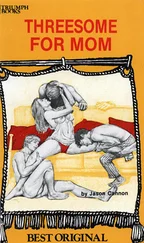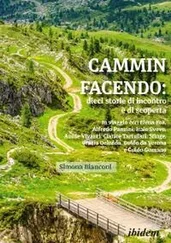Simon Foster - CHINA's Three Gorges & Xi'an
Здесь есть возможность читать онлайн «Simon Foster - CHINA's Three Gorges & Xi'an» весь текст электронной книги совершенно бесплатно (целиком полную версию без сокращений). В некоторых случаях можно слушать аудио, скачать через торрент в формате fb2 и присутствует краткое содержание. Год выпуска: 2010, Издательство: Hunter, Жанр: Старинная литература, на английском языке. Описание произведения, (предисловие) а так же отзывы посетителей доступны на портале библиотеки ЛибКат.
- Название:CHINA's Three Gorges & Xi'an
- Автор:
- Издательство:Hunter
- Жанр:
- Год:2010
- ISBN:нет данных
- Рейтинг книги:4 / 5. Голосов: 1
-
Избранное:Добавить в избранное
- Отзывы:
-
Ваша оценка:
- 80
- 1
- 2
- 3
- 4
- 5
CHINA's Three Gorges & Xi'an: краткое содержание, описание и аннотация
Предлагаем к чтению аннотацию, описание, краткое содержание или предисловие (зависит от того, что написал сам автор книги «CHINA's Three Gorges & Xi'an»). Если вы не нашли необходимую информацию о книге — напишите в комментариях, мы постараемся отыскать её.
CHINA's Three Gorges & Xi'an — читать онлайн бесплатно полную книгу (весь текст) целиком
Ниже представлен текст книги, разбитый по страницам. Система сохранения места последней прочитанной страницы, позволяет с удобством читать онлайн бесплатно книгу «CHINA's Three Gorges & Xi'an», без необходимости каждый раз заново искать на чём Вы остановились. Поставьте закладку, и сможете в любой момент перейти на страницу, на которой закончили чтение.
Интервал:
Закладка:
Tipping
Tipping is not an established practice in China and is only expected in places accustomed to dealing with tourists. Thus tourist guidesor driversare to be tipped, as are bellboysand waitersin better hotels. If you are on a group trip, tips are often arranged by the tour leader. Beyond this, any attempts to tip are generally politely refused, no matter how deserving you may feel a person is.
Keeping in Touch
China Postis the national mail carrier and its green and yellow (or green and white) signed branches are found in every town. Here you can send and receivemail and parcels, buy telephone cardsand sometimes make international calls. To receive mail, have it addressed to yourself at Post Restante, China Post, City, Province, China – you'll need your passport as ID to collect it. Standard mailto North America or Europe usually takes at least a week, although EMS(express mail service) is quicker and registers your mail. To send a postcard overseas costs $3.2, a letter costs $4.4, and parcels are around $85/US$10 per kilo (2.2lb) for surface mail or $160/US$20 per kilo for airmail. If you want to send a parcel home, you need to leave it unsealed so the items can be checked – there are packing services at post offices. China Post offices are generally open from 8 am to 6 pm, although in smaller settlements opening hours may be shorter, while larger cities sometimes have 24-hour brancheswhere you might also find Western Unionmoney transfer offices (see Money Transfer ). The staff will generally be able to decipher the destination, but to be sure you could get the country written in Chinese by your hotel (for a list of countries, see Language , at the end of this guide). If you can't get to a China Post, there are also a few green and yellow mail boxes dotted around some of the bigger cities. In upscale hotels you can buy stamps in the business center and they may send your mail for you too.
Telephones
China Telecomis the nation's telecommunications provider and their blue and white signs are found in all towns, very often next to China Post. Here you can make international callsby a variety of means as well as send faxes, and in some larger cities, check your e-mail. China Telecom business hours are usually from 9 am to 8 pmalthough larger cities may have 24-hour offices. There are private booths, where you are charged by the minute (around $3 per minute to Europe or North America) , IC phonecards, which slot into public telephones (similar cost), and, cheapest of all, Internet phone (IP) cardswhere you have to dial an access number, tap in your pin and number and are then connected internationally. You can also buy SIM cardsfor your cell phonehere, but be sure your phone is tri-band and the SIM you purchase enables international calls if you want to make or receive them. If you buy a SIM, you'll then have to purchase "pay as you go” top-up cards as you need them (keeping the old one to show staff when buying a new one makes getting the correct card easier) and note that you generally pay to receive calls. There are also public telephones and private telephone offices found everywhere. If you're staying in a mid-range or above hotel, you'll probably have IDD( International Direct Dialing) from your room, although you'll have to give a deposit of some sort to open the line. Also be aware that the hotel may charge for a call even if you didn't actually get through, and they map slap on a hefty surcharge.
To dial internationally, you'll need to tap in the correct country code (see below) and drop the first zero of the regional code. Within China, for local calls you dial the number without the code (unless calling from a cell phone), only adding the code if you're calling from another city. In Hong Kong and Macau, local calls are free from hotel phones.
International Dialing Codes
Australia – 00 61
Canada – 00 1
China – 00 86
Hong Kong – 00 852
Macau – 00 853
New Zealand – 00 64
UK – 00 44
US – 00 1
The Internet is very popular in China and all towns and cities have Internet cafés(many of which are 24-hr) where you can check your e-mail account, although speeds, standards and rates vary considerably. Recently there have been stricter controls on Internet cafés after a fatal fire in June 2002, although some argue that this was just an excuse to introduce stronger web filteringand thus restrict accessto sensitive websites (see Media, Internet , below). Along with firewalls, you currently also have to register your passport to use the Internet in some cities such as Shanghai. In the cheapest cafés ($2) connection may not be that good and you're likely to find yourself surrounded by swarms of adolescent online gamers. Better cafés charge a little more ($5 upwards) and can offer quieter and sometimes quicker access. Many hostels and backpacker cafés also have a few computers for Internet use, and some even have wireless connection if you've brought a laptop. Big hotel business centersare pricier ($20 an hour upwards) but should offer the same speeds and services as their counterparts in other countries. These days many mid-range hotels have Internet connection and maybe even wireless in their guest rooms – look for the @ symbol in the hotel listings in this guide.
Media
The media in China is censoredin all its forms, and editors may face jail time if they communicate unauthorized material. The state-run news agency, Xinhua (www.xinhuanet.com/english/), is the principal source of information and their choices about which stories to report and how to do so can be insightful. Hong Kong is a different story, with a wide variety of uncensored media.
Newspapers & Magazines
China's main English language newspaper, the China Daily (www.chinadaily.com.cn/english), offers news reflecting the way the government would like foreigners to view China, along with a handy listings section, and it's available at bigger hotels throughout the country. The main Chinese language national is the People's Daily which is available in English online at www.english.people.com. There are also local English Language newspapers, such as the Shanghai Daily , which predominantly cover city and national news ,but also give international round-ups . Magazinesare principally Chinese-language and those that are in English are, as ever, heavily censored, but often contain interesting articles nonetheless – try China Today , which was established by Soong Qingling, wife of Dr. Sun Yatsen. In large cities you can find imported, unadulterated international magazines such as National Geographic, Newsweek and Time . Larger cities also have ex-pat-oriented magazines like City Weekend , which contain reviews, entertainment listings and stories that don't always toe the party line. You can find these magazines in bigger hotels and bars, restaurants and cafés popular with ex-pats, although some are available on the Internet – that's magazines (www.thatsmags.com) is one website to look for, with Beijing, Shanghai and Pearl River Delta editions.
Читать дальшеИнтервал:
Закладка:
Похожие книги на «CHINA's Three Gorges & Xi'an»
Представляем Вашему вниманию похожие книги на «CHINA's Three Gorges & Xi'an» списком для выбора. Мы отобрали схожую по названию и смыслу литературу в надежде предоставить читателям больше вариантов отыскать новые, интересные, ещё непрочитанные произведения.
Обсуждение, отзывы о книге «CHINA's Three Gorges & Xi'an» и просто собственные мнения читателей. Оставьте ваши комментарии, напишите, что Вы думаете о произведении, его смысле или главных героях. Укажите что конкретно понравилось, а что нет, и почему Вы так считаете.












